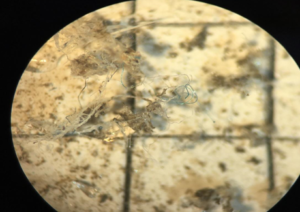Microplastic in Tampa highlight global crisis

Researchers found over four billion pieces of microplastic in the Tampa Bay in a July 2019 study from USF St. Pete and Eckerd College.
This study highlights the amazing scientific research done at USF and why our investments in research make us stronger as a university.
This research echoes the global problems that currently exist in every ecosystem around the world and demonstrates that the way we live is unsustainable.
Humanity has managed to significantly alter nearly every ecosystem on Earth with plastic fibers in exchange for less than 100 years of human convenience.
Lead author of the study, Kinsley McEachern, explained that “A plastic bottle that gets into the Bay today will last for 400 plus years, even greater than our lifetimes,” as reported by WUSF News.
Each one of those billions of pieces of microplastic has the potential to be eaten by an organism which could drastically alter our environment for the worse.
The study found that Tampa Bay had a similar concentration to other “industrialised bay ecosystems,” but was significantly higher than a sample taken from the open ocean.
USF and many other Tampa Bay area institutions have rather intensive recycling programs. However, even the best recycling programs still leave a lot of plastic discarded into the ocean. According to the research publication Our World in Data, only 9 percent of all plastics have been recycled from 1950-2015.
If we really do want to push less plastic into the ocean we need to incentivise industry to make products out of less harmful materials.
There needs to be a huge investment in different forms of packaging if we are to save our ecosystems. USF should not stop with simply identifying the source of the problem for the Tampa Bay ecosystem, but should research ways in which we can find alternatives to plastic.
The source of the problem is clear. We need to invest in new designs that reduce microplastics and help save our ecosystems. There have been examples of biodegradable containers, but they have yet to be widely implemented.
If USF, along with other research colleges around the world, develop ways to make biodegradable containers more cost-efficient, the onslaught of microplastics would be greatly reduced.
Jared Sellick is a junior majoring in political science.







